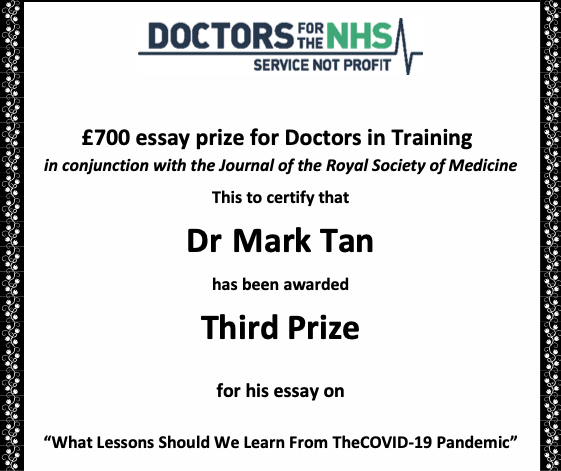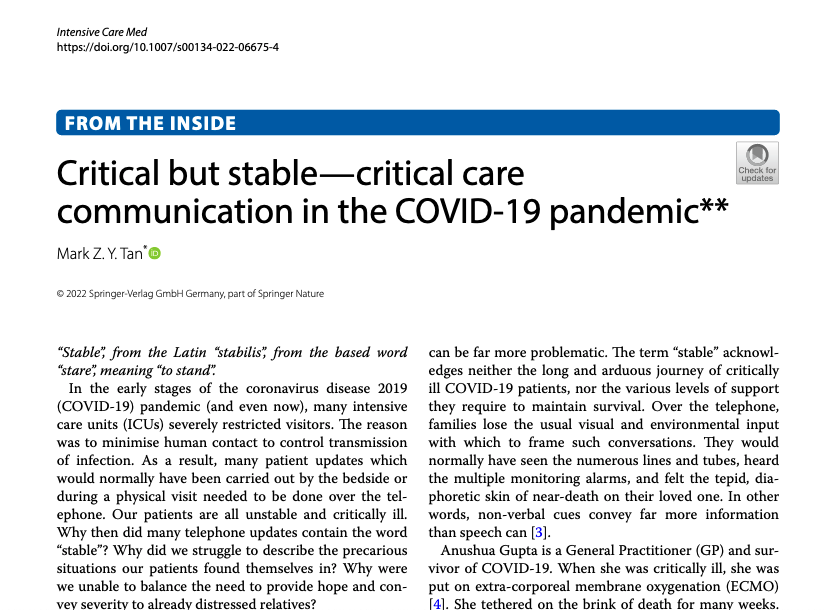
I’m delighted to announce that my essay, entitled Critical but Stable, has won 3rd prize for the Doctors for the NHS essay competition. Alongside, they are also publishing an interview about the NHS and resilience, and global health inequalities.
In the essay, I reflect on how I struggled with telephone communications during the COVID19 pandemic, explore the wide-ranging problems associated with absence of family during critical illness, and exposed the etymological problems with using such an ambiguous phrase.
For the interview, I explain my current research on healthcare resilience and use it as a frame to examine how resilient the NHS acctually is. I then explore global health inequalities and some complexities preventing health equity, issues with pursuing international health agendas, and balances struck between economy, healthcare and democracy. There is even a small segment about honeybees and resilience!
In addition, Critical but Stable will also be published in ICM journal. DOI: 10.1007/s00134-022-06675-4
“Before COVID19, I thought little about using the word “stable” in critically ill patient updates…The fact that intensive care units around the country and globally are filled with prone or supine patients, suffering from a multi-systemic disease, reliant on machines to maintain basic physiology, clearly indicates their inability “to stand”…So I will ditch the “stable” in COVID19, and embrace the fragility that this pandemic has exposed. For it is through our fragility that we continue to hope. Through humility that we practice selflessness needed to care for such patients. It is through instability that the human spirit clambers, climbs, and conquers, just like a patient’s recovery trajectory, until humanity stands once again.”
Read the Version of Record in ICM journal
Read the original prize winning essay and the interview in Doc4NHS’s March 2022 newsletter

As a prelude to this essay, listen to my original Telephone Lament for Coronavirus which was broadcast on BBC Radio 4 and touched many hearts early in the pandemic.

